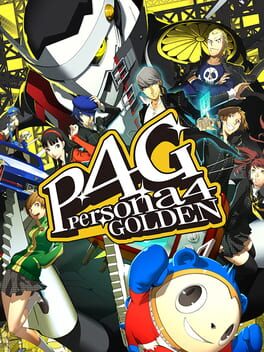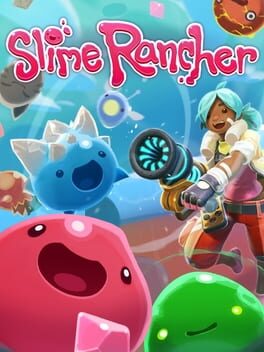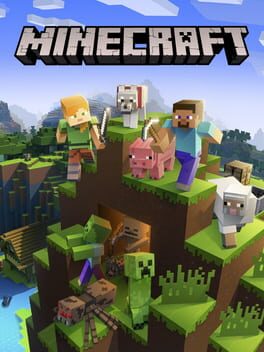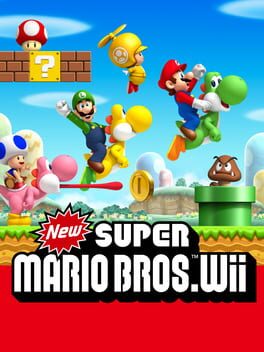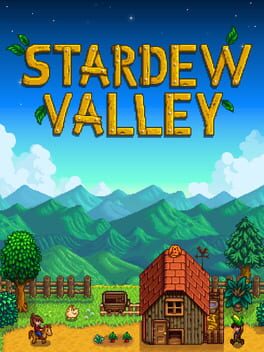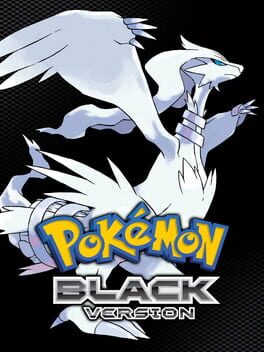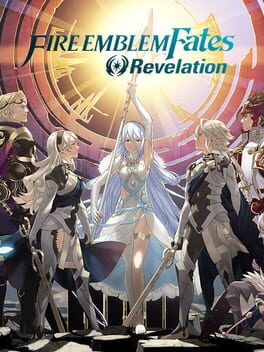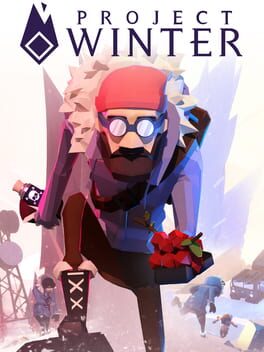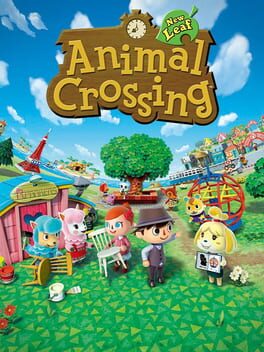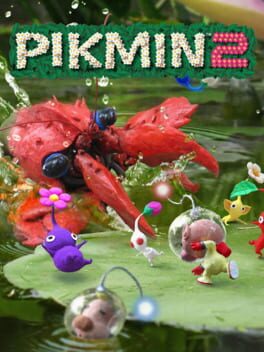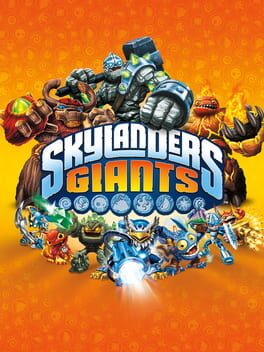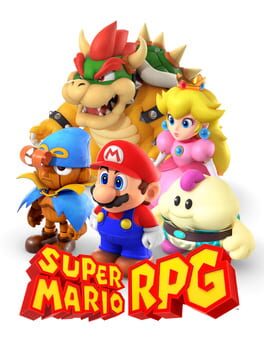Joshuachan
17 Reviews liked by Joshuachan
Persona 4 Golden
2020
The Persona high didn't go away after I finished Reload, so I decided to sit down and get additional achievements for a full playthrough of 4. I'm very happy I did, because I feel like my opinions on this game have solidified really well.
I find the gameplay here fine. It has controllable party members and a dungeon format instead of a 100 floor tower or subway system, but it lacks anything that adds a lot of depth to the game. I don't blame Golden for this, as it's mainly just due to how long ago the game came out. The life sim aspects are as fun and addicting as any other Persona, and the music grows on me each time I hear it. (Heartbeat, Heartbreak in particular is great).
What makes 4 slightly worse than 3 and 5 in my eyes, unfortunately, is the writing. That statement alone probably turned anyone reading this away, but I ask you hear me out. I don't really agree with sentiments you'd find on Twitter (I find Kanji and Naoto's arcs to be the best in the game), but that said I do feel that this game is extremely, and I mean EXTREMELY, dated. A better way to describe my feelings is I feel as though two different people wrote this game: one that cared about a murder mystery featuring high schoolers and an overwhelmingly stressful atmosphere, and another who wanted to write the most generic slice of life anime you've ever watched, gross tropes and all.
The members of the Investigation Team are all individually very enjoyable. Its when they share scenes, usually in the added golden content, that their annoying sides come out. Teddie is a character that deeply upsets me. I find that he has some genuinely good emotional moments throughout Golden's runtime, but a vast majority of his lines are creepy as all hell. I fucking despise the pervert trope, it's the main reason I don't really watch anime at all, and Teddie's perv energy is so massive that it infects the other characters while he runs his mouth. Yosuke in particular loses all of his brain cells as Golden's story goes on. Not only is he regulated to pervert comic relief with Teddie, but he's also really fucking rude to Kanji, like to an unfair degree. This is getting informal, but the dude literally accepted his magical dark shadow self by admitting that he isn't gay, just afraid of rejection, and yet Yosuke still gives him shit. Like I thought the whole point was to support your friends in accepting themselves, bad and all. Why tear into the dude about something that isn't even true and clearly tormented him. It sucks even more because Yosuke's writing before Kanji's dungeon and in his S-Link is really solid, and I REALLY want to like him more than I do.
As usual, I went on a rant. I want to end by saying that I feel the setting of Inaba is the strongest setting present in modern Persona. I'm not sure how, but Golden does a great job of making the scenery feel comfy and safe. I also, despite the creepy writing, can tell how much each member of the Investigation Team cares for one another, and to me they form a better group dynamic than S.E.E.S. and the Phantom Thieves. It's just a shame that when you inspect closer, ironically, the darker parts of some of these characters are hard to ignore.
I find the gameplay here fine. It has controllable party members and a dungeon format instead of a 100 floor tower or subway system, but it lacks anything that adds a lot of depth to the game. I don't blame Golden for this, as it's mainly just due to how long ago the game came out. The life sim aspects are as fun and addicting as any other Persona, and the music grows on me each time I hear it. (Heartbeat, Heartbreak in particular is great).
What makes 4 slightly worse than 3 and 5 in my eyes, unfortunately, is the writing. That statement alone probably turned anyone reading this away, but I ask you hear me out. I don't really agree with sentiments you'd find on Twitter (I find Kanji and Naoto's arcs to be the best in the game), but that said I do feel that this game is extremely, and I mean EXTREMELY, dated. A better way to describe my feelings is I feel as though two different people wrote this game: one that cared about a murder mystery featuring high schoolers and an overwhelmingly stressful atmosphere, and another who wanted to write the most generic slice of life anime you've ever watched, gross tropes and all.
The members of the Investigation Team are all individually very enjoyable. Its when they share scenes, usually in the added golden content, that their annoying sides come out. Teddie is a character that deeply upsets me. I find that he has some genuinely good emotional moments throughout Golden's runtime, but a vast majority of his lines are creepy as all hell. I fucking despise the pervert trope, it's the main reason I don't really watch anime at all, and Teddie's perv energy is so massive that it infects the other characters while he runs his mouth. Yosuke in particular loses all of his brain cells as Golden's story goes on. Not only is he regulated to pervert comic relief with Teddie, but he's also really fucking rude to Kanji, like to an unfair degree. This is getting informal, but the dude literally accepted his magical dark shadow self by admitting that he isn't gay, just afraid of rejection, and yet Yosuke still gives him shit. Like I thought the whole point was to support your friends in accepting themselves, bad and all. Why tear into the dude about something that isn't even true and clearly tormented him. It sucks even more because Yosuke's writing before Kanji's dungeon and in his S-Link is really solid, and I REALLY want to like him more than I do.
As usual, I went on a rant. I want to end by saying that I feel the setting of Inaba is the strongest setting present in modern Persona. I'm not sure how, but Golden does a great job of making the scenery feel comfy and safe. I also, despite the creepy writing, can tell how much each member of the Investigation Team cares for one another, and to me they form a better group dynamic than S.E.E.S. and the Phantom Thieves. It's just a shame that when you inspect closer, ironically, the darker parts of some of these characters are hard to ignore.
Celeste
2018
Unlike my last few reviews, I find myself struggling to come up with "interesting" commentary on this game. I was considering giving it 4.5 stars, but as I thought more, I couldn't find anything about the game I disliked, wanted more or less of. I love platformers, and the gameplay here brings its A-game from start to finish. It's short, and so sweet I can barely fathom it.
If you're a fan of platformers, beautiful pixel-art, amazing music, and a story that will make you smile, there's few better places to look. Would recommend.
If you're a fan of platformers, beautiful pixel-art, amazing music, and a story that will make you smile, there's few better places to look. Would recommend.
Slime Rancher
2016
Minecraft
2011
In terms of the "New" games, I tend to look upon this one and the predecessor on the DS as the ones worth playing. This is most likely nostalgia talking but it's honestly hard to help. For what the Wii is capable of, especially for Mario titles, this game plays things extremely safe. Little innovation, but what was added is enough to justify the console switch from handheld to home. The Propellor power-up is primarily what I mean (fun addition). The inclusion of limited motion controls was also a good touch. They aren't required to play the game, but add a little something here and there. Multiplayer is, as commonly stated, hectic when more than two players are present, but I'm among the crowd that enjoys this aspect. Suddenly, a platformer becomes an extremely competent party game, something a group of four can easily lose many hours in due in part to the chaos it produces. While this game marks the beginning of the creative decline for 2D Mario, I find that it provides enough to be worth your time.
Stardew Valley
2016
I think the genius of this game lies in its lack of rigid restrictions. I say this in comparison to similar games such as the Animal Crossing games (While I understand the flaw in this comparison, it's what I have personally to go off of, as I tend to play both for similar reasons). In Animal Crossing, despite it being a game where creative choice and individuality is promoted, there's a strict progression order in the first days. You steadily unlock parts of the map you can access and items you can use over real life days, or even weeks, blocking off parts of the game for long stretches of time. Stardew Valley, on the other hand, essentially throws you into the deep end, offering every single one of its main gameplay loops to you within the first steps into its world. Even today, as I start my 10th+ farm, I don't do the same things. There's no pattern that works, little way to optimize the fun out of it. This review is incoherent by the way, if you haven't noticed yet. I follow the belief that, if given the chance, I'll optimize any aspect of a game I can because it's just what the human mind wants to do. Stardew Valley is one of the few games I feel doesn't have this issue, as optimizing rarely gets you anything tangible. The game is endless, money is never a major issue, and there's so much to do that it's improbable to feel as though you aren't playing right, or missing something. All this and more make it my go-to comfort game.
Just gonna preface this one by saying that this review comes from someone who both grew up with Pokemon and still enjoys it currently, as an adult. Pokemon Black was my first mainline game in the series, and is the only one I feel holds through the flaws of its genre and presents a unique and worthwhile experience when compared to the progenitor games, Red and Blue. I cannot deny that gameplay is almost completely unchanged from the GameBoy titles, it's a formula I enjoy, however for the purposes of this review I will not be covering it as a positive. I feel the originality of this game lies in its visuals, music, and story (shockingly). As a game on the DS, "graphics" could easily be a detractor. 3d models were finally usable in handheld games, but instead of falling into the trap of making the game primarily 3d, they instead use it in deliberate and small ways that more enhance the locations around you. Large, endless skyscrapers in the games equivalent of NYC help to establish scale and draw connections to its inspiration. A loooong bridge above an active interstate, again drawing parallels to the US in ways that pixels just wouldn't allow for. Said pixels, however, are also used in deliberate ways. DS 3d has an issue with showing much detail, which is where the sprite work comes in. All of the characters and Pokemon are depicted using pixels, which allow for more detail and freedom of expression. The story, while made for kids (of course), is at the very least in its most interesting and cared for. The villains are not comically evil mobsters, climate warriors, or astronauts. They're essentially Pokemon PETA, existing in their mission to separate people and Pokemon from each other, as they view their captivity and use as battlers as inhumane. This, while basic, is the first time Pokemon has attempted actual commentary the likes of which could be seen, and in some ways are seen, in society then and now. There's more I could say but this is already getting too long.
Undertale
2015
Undertale is a prime example of how fame can harm a game. I was fortunate enough to play this game in late 2015, just a few months after its release. When I reflect on it now, I find it hard to imagine anyone playing the game blind, or wanting to interact with it given the notoriety of its fanbase. It's a shame, because I can't really say there's an experience in gaming quite like what Undertale can offer you. It lives around you, with you, and in response to you. Everything you do is recorded in a system I find ingenious. When it pays off, the game can be as eerie as any horror title, or as emotional as a drama. It's personal, addresses you as the player instead of you as your character. Its themes are relevant and important to society. It's almost too difficult for me to describe the feelings this game can evoke if its player is in the right state: unfamiliar and unspoiled. While these criteria become less common with each passing day, it's impossible to deny that this game is uniquely special, and in my eyes cannot be replicated. I wish I could say more, but I think I'll leave it here.
Whenever I see anyone attempt to defend Revelation, they always seem to bring up the freedom of customization of characters and their builds. The true sandbox Fire Emblem. Everything else might be mediocre to bad, but there's something fun about being able to completely customize your units and have unique playthroughs. In a better game, I would agree that this could be seen as a plus. Revelation is not that better game. In my experience, unless you're blasting down the hardest difficulty and just not having fun in any regard, this game is so easily stomped through that your character builds rarely matter. Weapons don't break, weapon triangle usually doesn't matter. With the exception of a few levels (which aren't well designed, only tedious), you can usually throw your anime guys and gals at the enemy and end up on top. If you lose anyone along the way, don't fret! You get about a bajillion others anyways, making none of them feel special, as each get about three lines on average to express their personality during the story. If I actually had to give this game a benefit, it's that a blind playthrough will probably entertain you through the nonsense of the story alone.
Project Winter
2019
If you're looking for a social deduction game, I think Project Winter is the best you're going to find. The comparison to Among Us is something this game will never escape, but I think it's a comparison that does it a favor, as I can compare just about every aspect and see that PW tends to look more favorable. Proximity voice chat is something that will single handedly make a game like this more engaging. Running around a snowy wasteland as the voices of your friends get quieter around you is an experience so hilarious and immersive that I tend to forget that I'm just sitting at my desk. Another of PW's many triumphs in the genre is its gameplay for the innocent players. In Among Us, if you aren't the coveted traitor role, you're really just running around waiting for something to happen as you do some flash game tasks. Project Winter on the other hand is as much a survival game as it is a social deduction game, as you and your friends have to explore a desolate wasteland finding parts and crafting tools to repair an escape vehicle. The best way to summarize this gameplay is that, this would be a satisfying multiplayer game even without the traitor aspect.
This is the most fully realized Animal Crossing that has currently been released. Pretty much every aspect of this one is in my eyes slightly more polished than its more contemporary sequel. I find the visuals slightly more stylized, the music just a tad catchier, and the content more plentiful. Over everything else, I want to highlight the multiplayer as a prime feature. New Leaf includes an area full of minigames to be played specifically with friends, and there are enough of them to actually kill some real time. I know my thoughts here have little substance, but it's hard to share my thoughts on a game so simple and charming.
Pikmin 2
2004
Pikmin 2 takes the charming dialogue, visuals, and music found in its predecessor and expands upon them in wonderful ways. I didn't think it was really possible to make the world presented in the original feel more charming and unique, but the small bits of story featuring Olimar's crappy job are a joy. The inclusion of real world items as treasures enhances the immersion as well - nothing like finding a Duracell battery to remind you that this game technically takes place after the nuclear extinction of humanity. The thing that makes this game a much different game than the original lies in its gameplay. It takes a more challenge-oriented approach, with procedurally generated dungeons stealing center stage. While usually fun, the caves cause occasional issues with balancing.
Skylanders: Giants
2012
I have no idea how to rate this one. Kid me was really never happier than indulging in capitalist greed through forcing my parents to buy me plastic figurines that now collect dust in a cardboard box. The toys to life idea really was a lightning in a bottle. Seeing the toys you bought come alive on screen was like, absolutely fucking crazy as a kid. Now, as an adult, it's hard to really judge it the same. It's boring, made for kids, and just hard to sit through. Patrick Warburton is a nice plus though.
Contrary to how I usually play new releases, I really tried to savor this one. Since the first trailer, I was really excited for this game: its looks, sounds, and new additions all seemed super unique when compared to 2D Mario titles from the last decade. As I got my hands on it and played over the course of weeks, everything I was excited for was clearly present. The animations were detailed and charming, the music was different than anything I've heard from the series, and even the sound effects were new. Everything this game accomplished cosmetically was a real breath of fresh air. As for the gameplay, the game's titular Wonder Flowers really make each level feel unique. Never before could I confidently distinguish individual levels in a Mario game, but the flowers change this. Each gimmick is different and memorable, each only ever adding to a level. Their optional nature, in my opinion, makes it almost impossible to see them as a detractor.
Super Mario RPG
2023
Super Mario RPG for me was always a game I’d constantly hear things about from internet reviewers and content creators, but it never seemed possible for me to ever play it. Maybe it’s because I never got into the emulation scene as a kid, maybe it’s because the snes original was “too old” for me. The announcement of a remake intrigued me, as now that I’m older I felt I could better enjoy a new rpg to its fullest.
Honestly, for what it’s worth, this game is nothing like the final fantasy’s of its genre, despite being made by Square. The gameplay is quick and snappy, focusing on tiny quick time events in combat instead of more rich mechanics. Both blocking and attacking require a rhythmic timing to perfect that makes the ordinarily stale combat of some rpg’s constantly engaging. The story is both short and filled with humor, two things also unbecoming of the genre. You aren’t getting a deep, 20+ hour emotional investment, just a 8-10 hour ride that’s constantly lighthearted, fun, and quite beautiful in its art style.
Last thing I wanted to comment on was the music. The original was already known for its classic tracks. Whether or not you’ve even heard of Mario RPG, if you’ve been on the internet for long, you’ve heard probably over half the soundtrack by now. Each composition is masterfully recreated for modern audiences, sounding fresh and new without sacrificing any of what made the original tunes so memorable.
I’m not sure I’d ever replay the game, but my first time through it was a blast from start to finish.
Honestly, for what it’s worth, this game is nothing like the final fantasy’s of its genre, despite being made by Square. The gameplay is quick and snappy, focusing on tiny quick time events in combat instead of more rich mechanics. Both blocking and attacking require a rhythmic timing to perfect that makes the ordinarily stale combat of some rpg’s constantly engaging. The story is both short and filled with humor, two things also unbecoming of the genre. You aren’t getting a deep, 20+ hour emotional investment, just a 8-10 hour ride that’s constantly lighthearted, fun, and quite beautiful in its art style.
Last thing I wanted to comment on was the music. The original was already known for its classic tracks. Whether or not you’ve even heard of Mario RPG, if you’ve been on the internet for long, you’ve heard probably over half the soundtrack by now. Each composition is masterfully recreated for modern audiences, sounding fresh and new without sacrificing any of what made the original tunes so memorable.
I’m not sure I’d ever replay the game, but my first time through it was a blast from start to finish.
